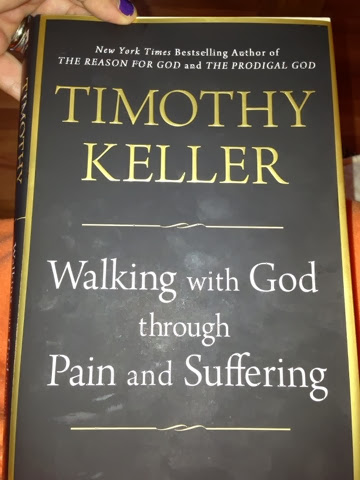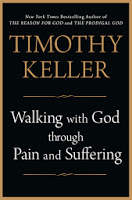I had a CT scan on Friday. We had a really busy and fun weekend, during which I ran my best 5K race ever. I’ve never run a 5K in less than 40 minutes, and my time was 38:41 with a 12:27 pace. I know it isn’t fast, compared to most runners, but, honestly, I was thrilled. My follow-up doc appointment was scheduled for Monday. I didn’t have any anxiety (or scanxiety as we cancer fighters call it) all weekend, but for some reason, an hour before the visit, I started worrying and couldn’t stop. When we got there, I noticed that they called every person back before me, even if they had arrived after. I started pacing, near stroke-level panic, realizing they might be putting me as Dr. Mehta’s last appointment. This could all be a total coincidence, but there was something I was sensing that turned out to not be totally unfounded.
Being a cancer patient does all of these strange things to you, and one of them is it creates this extreme, urgent desire to read people. You read everyone from the receptionist to the lady who takes your vitals to the nurses, and most definitely the doctor. I wonder how, when they teach about bedside manner in medical school, how they handle this. Do they tell the prospective doctors that patients waiting to hear news will be filled to the brim with anxiety and reading every facial expression, every word, interpreting every delay, every bit of data. She looked at me sympathetically – something is wrong! He frowned at my results – I’m dying, like, tomorrow. I even read the “system.” They didn’t email my blood work – I definitely have diabetes, leukemia, high cholesterol and zero white blood cells. Often my interpretations end up being wrong – at times, what I thought was a sure sign pointing toward bad news was nothing more than a computer glitch. But not this time.
He gave us the good news first. Liver looks great. Abdomen looks fine. Tumor markers are very low. But in my lungs, a previously unchanging nodule (a normal thing that lots of people have) changed. In 6 months, it seems to have grown from 4mm to 7mm. My doctor said he really doesn’t think it is cancer, but because of my history we have to be sure. He said he could send me for biopsy but that it really is so tiny, it would be tough to get a piece of it and a lung biopsy is no picnic. He mentioned a chest tube and I started getting tunnel vision and feeling light headed. Now, don’t get me wrong – I will do whatever has to be done. What. Ever. Has. To. Be. Done. I promised myself I would never shy away from a procedure or treatment no matter how much it would hurt or scare me. Frankly, I’m not scared of anything like this. I won’t like it. I might even hate it. But I do what it takes. I’m not going to get sicker because of a lack of courage. Now…given the honest recommendation of my oncologist to wait, I’ll take it. We’re waiting to see if it grows. If it doesn’t in two months, we’ll check again in another two. If it grows, we’ll do the horrible sounding biopsy. If it’s cancer, we’ll “scoop it out” (ugh) and proceed with chemo, I assume. After all of this, he said he thinks it’s 98% not cancer. That surprised me. I thought we were talking 50/50.
So how am I doing? Not great. Not bad. I have truly, truly been through the emotional wringer with all of this – it has this ripple effect that touches everything else in your life. I have experienced such highs and lows through it all – I’ve felt more alive than ever in my whole life, and I’ve also felt like death doesn’t sound so bad. I’ve felt so fully loved, so much hope, so much gratitude, and also disappointment, anger and sadness. I’ve been shocked both by unexpected kindness and unexpected failures. Cancer amplifies life. Takes you soaring one day and plummeting to the ground the next. I’m kinda beat up, honestly.
But I think the “beat up” that I feel is more the hangover that I’m experiencing from that 45 minutes in the waiting room and exam room where I knew something was wrong, and got the “bad news” vibe before I actually heard what this news was. I suppose there is something chemical in the brain that happens – adrenaline, cortisol, something that just floods everything. The news honestly isn’t dire at all. As my mentor said “2%? There’s at least a 5% chance there is something worse in my body I don’t even know about.” That really helped me gain a little perspective, actually. But my brain thought it was dire for 45 minutes, and it’s still there, in that “oh shit” space, even though the data says otherwise.
I dug out a Tim Keller sermon this morning, because I know I have to think my way out of this one and the best way to do that is to listen to people smarter than I am. It was a good reminder of what I know to be true in terms of God’s goodness, His sovereignty, His purposefulness. It also reminded me of my own responsibility in my emotional life. There is this little fable or whatever I’ve read once or twice about there being two wolves that live inside you (I think of mine as dragons) and one is anger/frustration/unhappiness/bitterness and the other is joy/contentedness/peace/love. They fight for control. Which one wins? The one you feed.
The bad dragon loves self-doubt, fear of failure, unforgiveness, performance-based acceptance, blame and shame. I need to feed the good dragon with knowledge of God’s love and care, restful, energizing experiences, wholesome food, tough exercise, you tube videos of news bloopers, grace, people who are encouraging, fair, loving and consistent, healthy vulnerability, challenges I am capable of meeting, good books, pleasant company and prayer. Help me feed the good dragon, ok?











